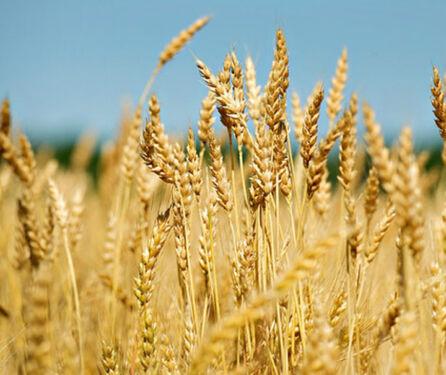About $6.1 billion is spent yearly to import wheat into Nigeria according to the Wheat Farmers Association of Nigeria.
Wheat is the only grain that is yet to record significant progress since 2011, with many farmers now going out of production. Despite being high in demand, successive administrations in Nigeria failed to improve its production, prompting some farmers to call it “political crop” because they believe its neglect is political; not economical. Statistics from World-Grain show that in 2017 Nigerian wheat was valued at $15.5m, up from $13m in 2016. The figure increased to $16m in 2018 and a further increase in production to the value of $16.3m.
Speaking to a press conference on Thursday 22, 2021 in Abuja the president of the wheat association Alhaji Salim Muhammad, while issuing a report on the state of the wheat in the country hailed the Central Bank of Nigeria (CBN) over various policies that placed wheat on Forex restriction saying such exemplifies of the major strides made so far by the government.
According to him, Nigeria consumes five million metric tons of wheat per annum, while a meagre 420,000 tons is produced locally.
In an earlier report, a research done by the United States Department of Agriculture it established of the minimal wheat production in the country only managing to produce just about two per cent of all the wheat it consumed.
According to the research by the United States Department of Agriculture between 2010 and 2020, when the consumption level of wheat rose, the country failed to grow more wheat, instead it closed the shortfall in supply by significantly importing more wheat.
In its significant it was directly felt by the consumers who had to encounter higher prices of wheat products.
2020, amidst the impact of the COVID-19 lock down, the prices of bread rose in the country by at least 14 per cent. A loaf of bread that previously sold for $0.92 has since then sold for $1.05in Abuja.
ALSO READ: African business at a glance
However, Alhaji Salim says that in view of numerous challenges that plagued local production, the policy would enable the government to unlock the unrealized potentials in the wheat sub-sector.
“The forex restriction policy will give relevant stakeholders the confidence to invest in the wheat sub-sector as the returns on their investments are protected.
“Production and productivity will automatically increase to meet local demand,’’ the association president said.
Muhammad noted that farmers would be given incentives to produce more as there would be improved quality seeds, access to the market and better prices for their produce.
“We are engaging 600,000 farmers on an average of three tons per hectare, which will translate to 1.8 million tons of wheat this season.
“We have the capacity to produce and feed ourselves if a road map toward self-sufficiency is adopted via a special purpose vehicle called Wheat Round Table (WRT) where all relevant stakeholders work together.’’
Muhammad said that with the policy, the government would get closer to achieving its goal of food sufficiency in the country.
He, however, appealed to the government not to recall the ban as it would provide assurances on return of investment for private investors in the wheat sector.
He commended President Muhammadu Buhari for his intervention to revive agriculture and provide more jobs for Nigerians.
Wheat was traditionally consumed in Northern Nigeria mainly by the aristocrats to prepare festive
dishes such as alkaki, taliya, tsats-tsafa, curasa and dubulam. But prior to the imposition of ban on
its importation in 1986, wheat consumption had penetrated all the strata of the society, including the
rural areas.
Bread consumption which was modest, being regarded as luxury food during the colonial
era became the cheapest food available from 1960 and consequently its consumption escalated
astronomically. The rapid expansion in wheat bread consumption was equally matched with
tremendous expansion in bakeries and confectioneries and the number of flour mills rising from just
one in 1960 to twenty-two in 1986. To feed those mills, Nigeria has had
to increase the wheat import from 0.26 million metric tonnes in 1970 to about 1.5 million metric tonnes
in 1986.
In Conclusion wheat farming in Nigeria has continued to expand gradually with its end products increasing in demand, prompting to Importation.
